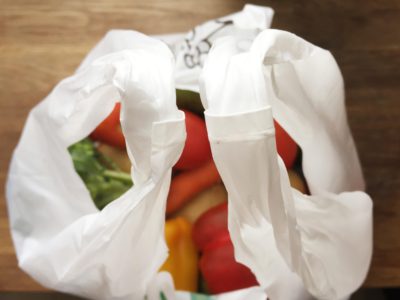
Plastic bags are to be banned across Tanzania by January 1, 2017. But what happens then? Photo: Daniel Hayduk
The proposed plastic bag ban may be a great idea, but what happens then?
Paper bags aren’t necessarily as good as they seem and recycling existing plastic is inefficient and difficult, says Matthew Haden, managing director of The Recycler.
On Thursday (August 18) the Vice President’s office stated they hope plastic bag manufacturers shift into producing alternate types of bags or plastic waste recycling.
Recycling products — which still requires energy and resources — is not as good as reducing and reusing, says Haden.
“Recycling plastic bags is a notoriously difficult and inefficient process and therefore less than one percent of plastic bags are recycled. Going into paper bags instead of plastic should also be discouraged, as when paper bags end up in a landfill they release serious amounts of methane, a very harmful greenhouse gas.”
But nevertheless, Haden says the ban of plastic bags is ‘great news.’
“While there are definitely industries in Tanzania that are producing plastic bags, mostly from virgin material, and creating jobs through the process I believe that the negative effects of extensive plastic bags use outweigh the positives of job creation and employment.”
Haden hopes to see kitenge tote bags and other types of reusable bags proliferate the market.
“This is the most sustainable way forward.”
